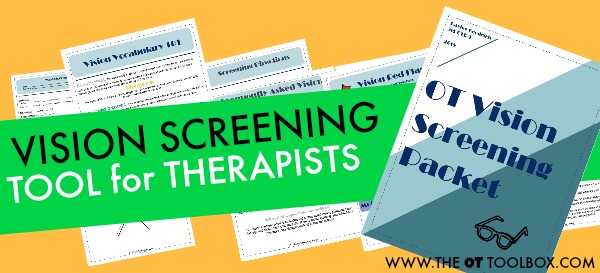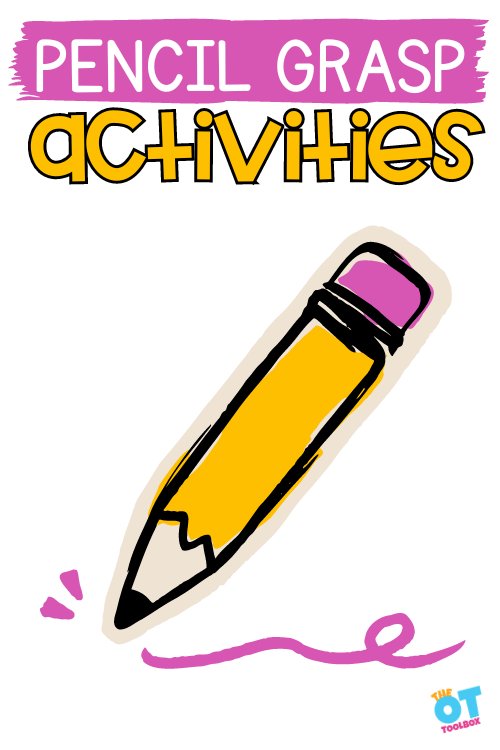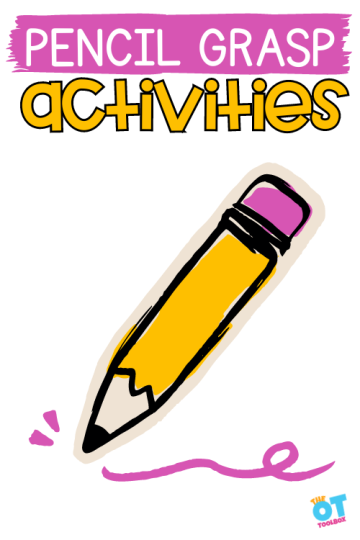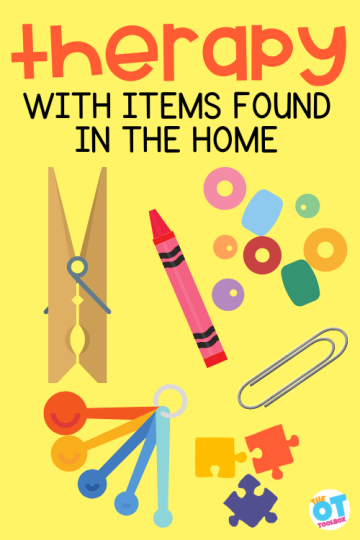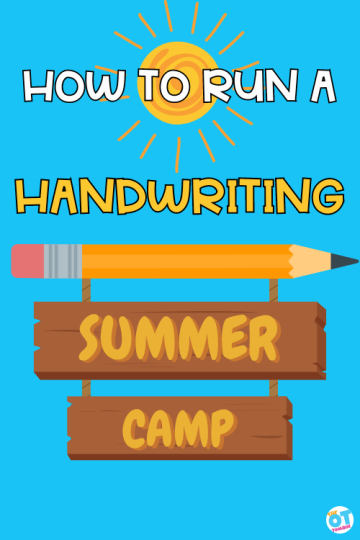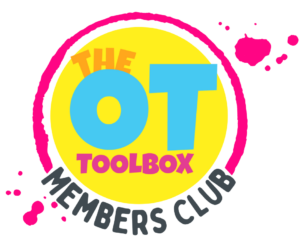Visual deficits and occupational therapy interventions go hand in hand. And, the connection between vision problems or attention issues impacts children when it comes to ADD and ADHD. In fact, the connection between visual deficits and attention is especially a factor in OT treatment. Trouble paying attention, difficulty with reading, finishing work on time and staying on task can be signs of both attention issues or a vision issue. So, how do you tell the difference, and what do you do about it? Knowing if a visual impairment is present can mean the difference between accommodating for vision difficulties and a different diagnosis, such as attention deficit disorder.
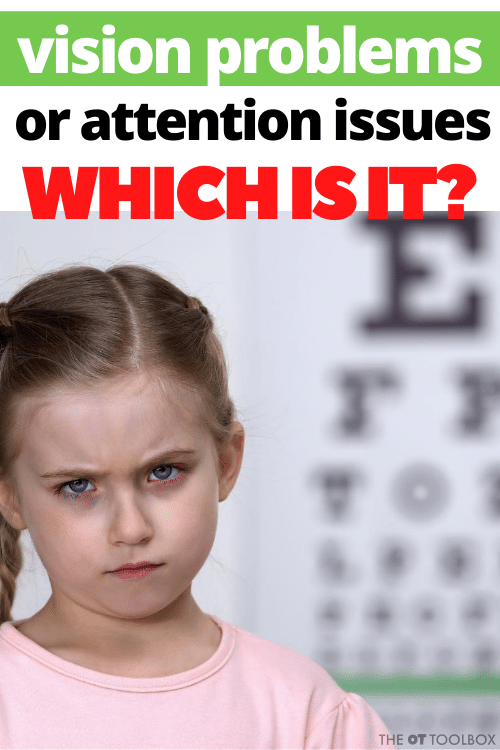
Vision or Attention Deficit Disorder
Children with vision deficits work twice as hard, and use more “brain” power to make their eyes work correctly as compared to peers without vision deficits.
Children with vision deficits may also experience fatigue more quickly, have frequent headaches, or blurry vision.
When they begin to experience the above symptoms, it is easier for the child to look away, leading them to appear to be “staring off into space” or lose focus. These behaviors are often mistaken for ADD in the classroom setting. Vision deficits that may be behind these symptoms and actions include:
- Poor tracking
- Poor teaming
- Poor convergence and divergence
- Eye muscle imbalances
All of these issues can impact learning.
Vision and Social Skills
Like kids with ADD, kids with vision deficits often appear to have poor social skills. Behaviors include a lack of response to their name, missing social cues or facial expressions, and not attending to others in the room.
This apparent “lack” of social skills is also related to how hard they are working on using their eyes. When this happens, the level of executive function left for other tasks significantly decreases.
This may also make the child appear “scatter brained” or disorganized.
Attention Deficit Disorder Symptoms
Vision concerns outside of acuity are FREQUENTLY missed due to limited vision screening protocols and the desire to quickly remediate behavior.
In addition to limited vision screening, vision deficits are not widely recognized as a potential reason for distracted or inattentive behavior.
Attention issues and vision Problems
If you have concerns, or concerns have been brought to your attention, regarding your child and ADD, rule out vision deficits first. A trip to a developmental ophthalmologist may help better explain your child’s behavior concerns and provide them the help they truly need.
WHAT IF YOU SUSPECT VISION PROBLEMS?
Now what? When vision problems are suspected after a screening by the OT, it is best practice to refer the family to a developmental optometrist.
A developmental optometrist will complete a full evaluation and determine the need for corrective lenses, vision therapy or a home program to address vision concerns.
As occupational therapists, it is imperative that we rule out vision problems before treating handwriting or delays in visual motor integration, to ensure the best possible trajectory of development and success for the child.
OCCUPATIONAL THERAPY VISION SCREENING TOOL
Occupational Therapists screen for visual problems in order to determine how they may impact functional tasks. Our newest Visual Screening Tool is a useful resource or identifying visual impairments. Visual screening can occur in the classroom setting, in inpatient settings, in outpatient therapy, and in early intervention or home care.
This visual screening tool was created by an occupational therapist and provides information on visual terms, frequently asked questions regarding visual problems, a variety of visual screening techniques, and other tools that therapists will find valuable in visual screenings.
This is a digital file. Upon purchase, you will be able to print the 10 page file and print off to use over and over again in vision screenings and in educating therapists, teachers, parents, and other child advocates or caregivers.
Click here to read more about the Visual Screening Tool
